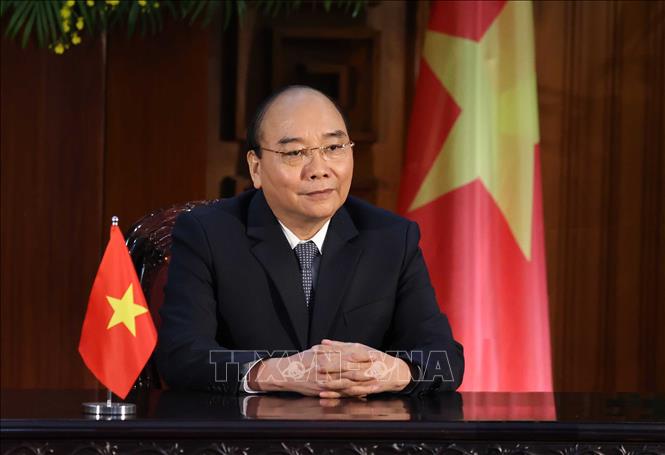Vietnam needs US$35b for climate resilience in next 10 years: PM
Vietnam is one of the most vulnerable countries to climate change due to its extensive coastline, vast deltas and floodplains, and on the path of typhoons.
Vietnam’s Prime Minister Nguyen Xuan Phuc has said the country needs an approximate US$35 billion to cope with climate change in the 2021-30 period.
| Vietnam’s Prime Minister Nguyen Xuan Phuc at the 2021 Climate Adaptation Summit. Photo: Vietnam News Agency |
The country is far reaching its climate resilience goals because its weak financial capacity only meets around 30% of the total spending, Prime Minister Phuc said at the 2021 Climate Adaptation Summit (CAS 2021) held by the Netherlands on January 25-26.
Covid-19 has eaten up budget and efforts allocated for climate adaptation, the Vietnamese Prime Minister said at the global climate action event with the participation by more than 30 world leaders, including French President Emmanuel Macron, German Chancellor Angela Merkel and British Prime Minister Boris Johnson, US President's Joe Biden’s newly-appointed climate envoy John Kerry, and Deputy Chinese Vice Premier Han Zheng.
Mr. Phuc thanked foreign stakeholders, countries and organizations for their assistance to Vietnam over the past years and hoped to receive more financial support from them.
He affirmed that Vietnam is following low-carbon approach in addition to enhancing resilience among communities and industries with the participation of multi-stakeholder partnership for climate change adaptation.
Climate adaptation will also be further mainstreamed into the national strategies and planning, the Prime Minister said.
| Central Vietnam submerged in floods in 2020. Photo: VGP |
Situation in Vietnam
Being one of six hardest-hit countries by climate change in 2018 in the German environmental think tank Germanwatch’s Global Climate Risk Index, Vietnam is struggling with sea level rise, coastal erosion, flooding and drought.
In 2020, natural disasters cost the country an amount of VND37.4 trillion (US$1.6 billion), five times higher than the previous year’s damage, and claimed 357 lives, doubling on-year.
Laurent Umans, the First Secretary of Water and Climate Change at the Embassy of Netherlands in Hanoi, believed that better public-private partnership (PPP) will work in climate resilience.
Law on Public-Private Partnership will facilitate the attraction of private investment in infrastructure projects in the context of limited state budgets and resources, Laurent Umans told Tuoi Tre.
“Instead of using state budget for fully integrated plans, mobilizing alternative finance from private sector should be a priority,” Umans suggested.













